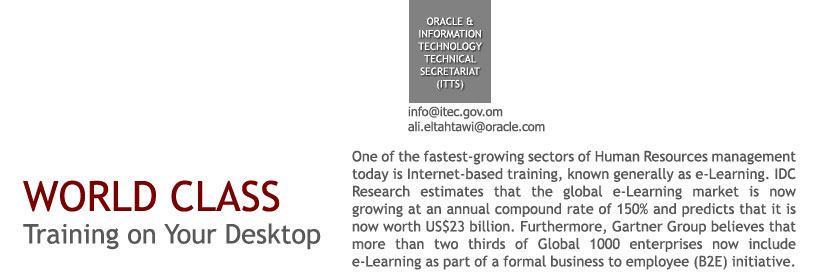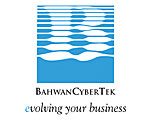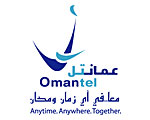The Information Technology Technical Secretariat (ITTS) presented Oracle iLearning Software to its Digital Oman Society stakeholders in April.


The ubiquitous availability of the Internet, more user-friendly technology and improved IT infrastructures are setting the stage for this widespread uptake in e-Learning. Internet connection rates are improving all the time, sophisticated software packages are available that let employers insert their own training materials, and some suppliers even offer a “hosted” e-Learning system, which means that in-house IT staff do not need to be pulled off projects to manage or fix the training software.
Many HR executives are now also considering e-Learning to improve productivity, reduce the cost of holding physical seminars, minimise training expenses and improve knowledge sharing. Another key driver is the global focus on good corporate governance in line with the Sarbanes-Oxley Act in the United States and the adoption of the new International Accounting Standards.
“It’s impossible for any organisation to achieve compliance unless all its employees have the necessary skills, capabilities and training and not simply in their day-to-day duties but also in the business practices, ethical guidelines and regulatory or statutory requirements,” said Brian Gregory, a Senior Director at Oracle, one of the leading suppliers of e-Learning software.
“In a large multinational organisation, communicating to, training and monitoring the workforce is a difficult matter, but one that can be made a lot simpler with the use of e-Learning linked to a Human Resource Management System that records and monitors skills and capabilities.”
A major adopter of Oracle Learning Management is the Amplifon Group, a provider of hearing aids, which is using the software to reduce training-related costs and increase the productivity of its globally dispersed 2,700 person sales team. In two months, Oracle Learning Management saved Amplifon €70,000 (circa RO33,000) in travel-related training expenses and reduced course time by 58%, or 4,900 hours.
Educational establishments are also turning to e-Learning. Yeovil College in the UK was one of the first educational establishments in the country to install Oracle Learning Management to serve 8,500 full- and part-time students and 500 staff.
In keeping with a general trend towards colleges developing their own virtual learning environments for further education – a trend supported by significant annual British government funding since 2001 – Yeovil College was looking to develop a Web-based learning environment and content-management system. “We wanted a low-cost, high-penetration learning solution to increase the level of service we are able to offer both students and staff,” explained Dick Russell, director of academic planning at Yeovil College. “For students this might mean coursework and extra-curricular material; for our staff it might mean IT training and health and safety reports.”
Russell describes the implementation of Oracle Learning Management as a significant step towards achieving the college's overall goals – to provide a high quality of service, to attract and retain students and to ensure the highest possible exam achievement.
Yeovil College has been using Oracle Database since 1997, and introduced Oracle Application Server and OracleAS Portal in 2001. “We have four database instances set up within a single Real Application Cluster,” said Steve Fenwick, the college's MIS manager. Yeovil's Oracle Real Application Clusters are configured using two Dell servers running Windows 2000.
“Oracle Application Server Portal provides a public Website, an academic portal for students and a corporate portal for college staff,” Fenwick said. “Oracle Learning Management is also connected to a database instance in the database cluster. Our potential for growth in the area of e-Learning is almost limitless.”
One of the advantages of having Oracle technology already in place is that it provides a platform from which to move forward, as Yeovil College experienced first-hand. “When it came to establishing an e-Learning environment, we considered several other major software providers,” said Russell. “However, we quickly discovered that all of the other software we were looking at duplicated the portal technology we already had in place with Oracle Portal. More significantly, the others only seemed to offer a cut-back portal functionality, while we had the full-blown product. That's another major reason why we chose Oracle Learning Management.
”Oracle has provided us with the potential for development that we needed. We could have bought an off-the-shelf e-Learning package designed specifically and only for colleges, and that might, in the short term, have saved us some in-house development work, but it would not have provided us with the integration with our other crucial, existing systems, or the possibility for expansion that we need in the longer term. And one of the strengths of Oracle technology is how well and easily it lends itself to achieving any necessary customisations in a cost-effective manner.”
Oracle Learning Management is available as an online service, eliminating the need for complex installations on individual computers and ongoing software maintenance. Learning communities can therefore be set up very quickly, enabling organisations to customise their community and deliver course content in a pure Internet environment. Yeovil College launched Oracle Learning Management across the college over a three-day period in January 2003. The swift implementation was carried out in-house, following some training from Oracle consultants.
“Our strategy is aimed at improving the quality of the learning experience,” Russell said. “Oracle Learning Management gives our students access to teaching and learning at times when they could not otherwise get it because, for example, the college is closed or students are based remotely. It also potentially attracts those students whom we do not currently see at all, and broadens student participation in academic college life. Lastly, it provides effectiveness and efficiency. Some things are best achieved through electronic means and some things are best achieved by assembling people in a classroom and talking to them – it's a question of being selective and using the new tools appropriately.”
Even at this early stage, the e-Learning facility is already being used by about 10% of students at the college, a figure that is expected to grow rapidly as students and staff become more familiar with the concept of e-Learning.
Any initial reservations about e-Learning among students and staff have already been replaced by a marked enthusiasm for the possibilities it offers. “One lecturer was particularly resistant, and after a few months of using it he is now full of plans for how to develop its use further in delivering his courses,” Russell reported.
The fact that companies do not have unlimited funds for employee training, and when training is not directly related to increasing profitability, it is often regarded as “nice-to-have” rather than essential. e-Learning is a highly suitable solution to this dilemma. According to the Advanced Distributed Learning (ADL) initiative, when compared to traditional instructor-led courses, e-learning can reduce training costs by 30-60% and cut the time needed for instruction by 20-40%.
For example, last year Oracle delivered an internal ethics training course and examination simultaneously to more than 42,000 employees around the world, using its own Oracle Learning Management software. The software allowed all staff to take the course and the test in 30 minutes while seated at their desks, ensuring minimum disruption to the working day.
The training was rolled out at a fraction of the cost and in a fraction of the time that a classroom-based course would have taken. Perhaps most importantly, because the software is linked to Oracle’s overall Human Resources Management System, HR managers were able to track the results of the test in real time and watch out for any serious knowledge gaps.
Results and benefits like these are helping HR professionals to move e-Learning out of the “IT ghetto”, where it has been used almost exclusively by information technology workers to learn new computer programming skills or take online certification courses, and into the wider organisation.
“Oracle Learning Management was built from the ground up to provide both mid-sized and large companies and public sector organisations with a complete learning management system that supports the full range of activities associated with training and development,” said Joel Summers, senior vice president of Global HRMS and Learning Management Product Development at Oracle. “Coupled with Thomson NETg’s library, companies can now provide employees with world-class learning programmes that are easy to deploy, targeted to job roles and aligned with organisational goals.”







